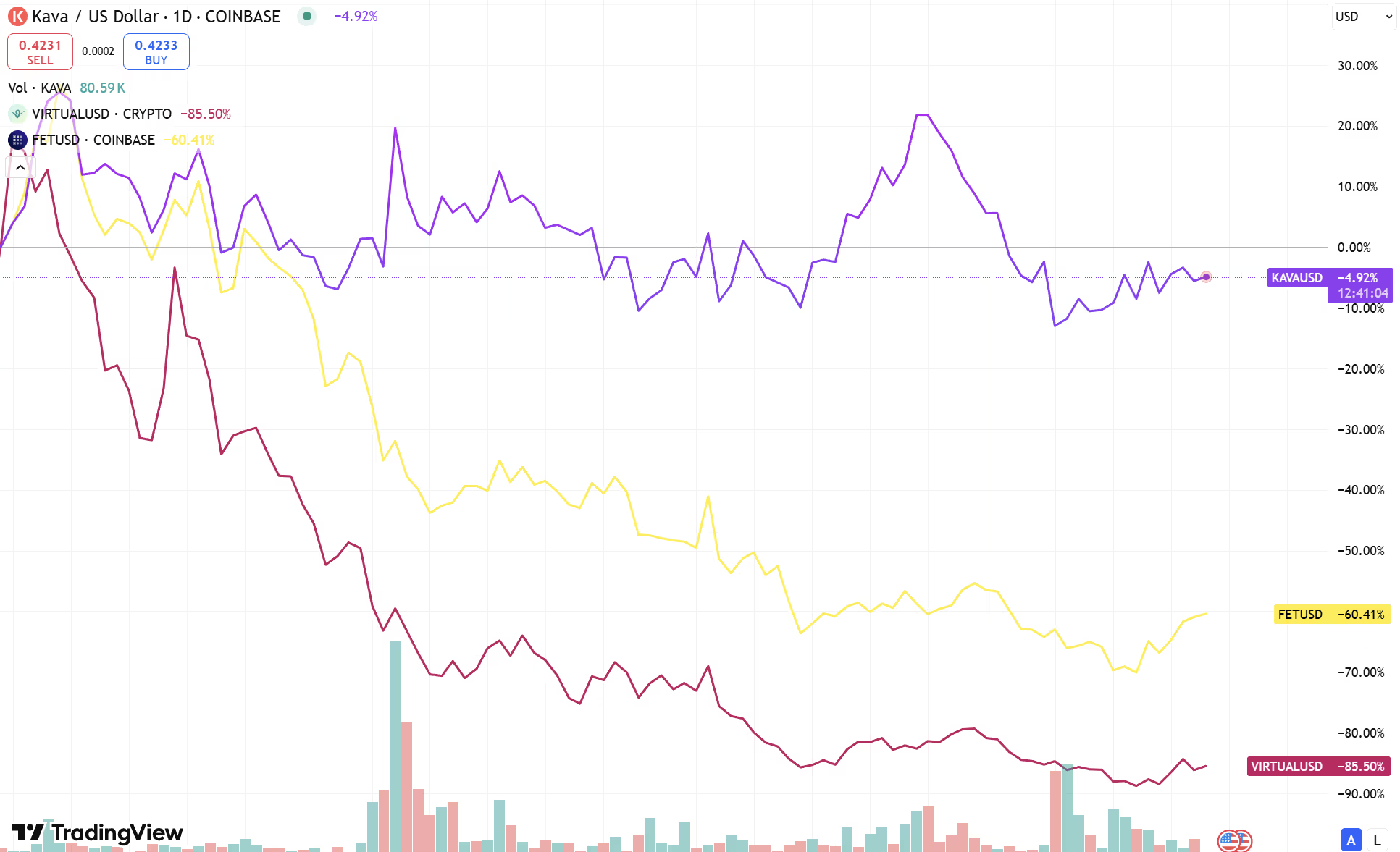Kava Labs Co-Founder Says Decentralized AI Delivers Real Benefits, Not NFT-Style Hype
Kava Labs' Scott Stewart: Decentralized AI Delivers Real Benefits, Not NFT-Style Hype
Kava co-founder explains how the shift from DeFi to AI allowed him to outperform the market while other AI tokens failed.
Sam Reynolds | Edited by Parikshit Mishra on April 14, 2025, 12:43 PM

What you need to know:
- Kava Labs co-founder Scott Stewart believes AI tokens have long-term potential, unlike previous crypto trends such as NFTs.
- Kava's move to decentralized AI has helped create an open-source AI platform and marketplace.
- Stewart emphasizes the importance of transparency in AI, contrasting Kava's approach with closed models that lack accountability.
In an interview with CoinDesk, Kava Labs co-founder Scott Stewart said that AI-powered tokens will remain relevant in the long term and will not become another passing trend in the crypto space like non-fungible tokens (NFTs), despite the many failures in this space.
“We experienced the first wave of AI, but it was projects like Fetch that said, ‘We’re going to merge,’ but never delivered anything, or projects like Virtuals or AI16z that started out promising and then fell 80% or 90%. It was a disappointing end,” Stewart told CoinDesk.

Market data shows that AI-linked token Virtuals has fallen nearly 85% since January. FET, the token from Fetch.ai, an artificial intelligence alliance, has fallen 60%.
KAVA, meanwhile, is feeling pretty confident, down just 5%, allowing it to outperform the CoinDesk 20, a market index that has fallen 29%.
Kava wasn’t originally an AI project. Originally known as Cosmos-based decentralized finance (DeFi), it started out as just another DeFi project, but pivoted to decentralized AI to stand out amid ongoing crypto market consolidation.
Following this transition, Kava unveiled its platform and marketplace Kava AI, a blockchain chatbot similar to ChatGPT, powered by DeepSeek's large R1 language model,
Источник



